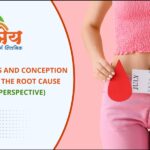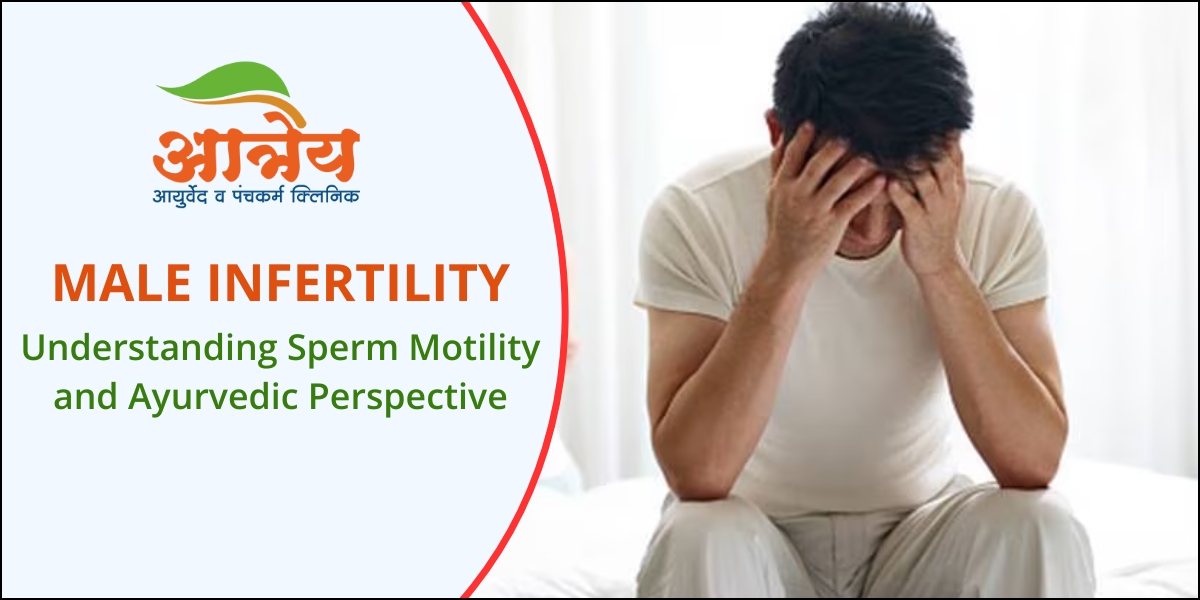Male infertility is responsible for nearly 40–50% of infertility cases worldwide, yet it often goes unnoticed or unaddressed. One of the most important indicators of male fertility is sperm motility — the ability of sperm to move efficiently toward the egg for fertilization. Ayurveda views fertility not just as a physical function but as the reflection of overall vitality (Ojas), digestion (Agni), and balance of Doshas.
By focusing on root causes like Vata imbalance, poor digestion, and stress, Ayurveda offers safe, natural, and effective solutions to improve sperm motility and reproductive health.
What Is Sperm Motility?
Sperm motility refers to the movement and swimming ability of sperm cells. Healthy motility is essential for sperm to travel through the female reproductive tract and reach the ovum.
- Normal motility: At least 40% of sperm should be motile for healthy fertility.
- Low motility (Asthenozoospermia): When less than 40% of sperm move effectively, fertilization becomes difficult.
Causes of Low Sperm Motility (Modern View)
- Sedentary lifestyle and lack of exercise
- Smoking, alcohol, and poor diet
- Overheating (tight clothing, laptop use on lap, etc.)
- Chronic stress and anxiety
- Hormonal imbalance or varicocele
- Long-term medication or chemical exposure
Ayurvedic Understanding of Low Sperm Motility
In Ayurveda, male fertility depends on the strength of Shukra Dhatu — the reproductive tissue responsible for semen production.
Low sperm motility is often a result of:
- Vata imbalance: Causes irregular movement and poor coordination of sperm.
- Pitta aggravation: Leads to heat, inflammation, and low sperm vitality.
- Kapha imbalance: Causes stagnation, heaviness, and reduced sperm count.
- Agnimandya (weak digestion): Produces Ama (toxins) that block reproductive channels.
Ayurvedic treatment focuses on cleansing, nourishing, and revitalizing the Shukra Dhatu naturally.
Ayurvedic Management of Low Sperm Motility
1. Panchakarma Detox (Purification)
A customized detox program helps clear Ama and balance the Doshas:
- Virechan – Cleanses Pitta and improves liver function.
- Basti – Balances Vata and strengthens reproductive channels.
- Rasayana phase after detox enhances Shukra Dhatu and overall vitality.
2. Diet for Healthy Sperm
- Include: Milk, ghee, almonds, walnuts, dates, pumpkin seeds, pomegranate, moong dal, and fresh fruits.
- Avoid: Junk food, fried items, excessive caffeine, alcohol, and late-night meals.
- Tip: Eat at fixed times and maintain good hydration.
3. Lifestyle & Stress Management
- Regular sleep (10 PM – 6 AM)
- Moderate exercise and yoga (Vajrasana, Baddha Konasana, Setu Bandhasana)
- Avoid prolonged sitting or heat exposure in pelvic area
- Practice meditation or Anulom Vilom pranayama daily
4. Ayurvedic Herbs (under expert guidance only)
- Ashwagandha
- Gokshura
- Shatavari
- Kapikacchu
Low sperm motility is not a permanent problem — it’s a sign of imbalance that can be corrected. Ayurveda offers a time-tested path to restore male fertility by balancing Doshas, strengthening Shukra Dhatu, and rejuvenating the mind and body. Through Beej Sanskar and holistic care, couples can move toward natural conception and a healthy future generation.
For a personalized Ayurvedic male fertility treatment in Pune & Beej Sanskar program, contact Aatreya Ayurved Clinic at 9860007992.
Beej Sanskar and Male Fertility
As part of Beej Sanskar, men undergo Shukra Shuddhi (purification of reproductive tissue) through Panchakarma and Rasayana. This process enhances sperm quality, motility, and count naturally. It ensures the male partner contributes to the creation of a healthy, strong, and intelligent child.
FAQs on Male Infertility & Sperm Motility
Q1. Can Ayurveda improve sperm motility naturally?
Yes. By detoxifying the body, improving digestion, and rejuvenating Shukra Dhatu, Ayurveda enhances sperm motility safely and naturally.
Q2. How long does Ayurvedic treatment take to show results?
Usually 3–6 months, depending on the individual’s constitution, lifestyle, and severity of imbalance.
Q3. Does stress affect sperm motility?
Yes. Mental stress disturbs Vata and Pitta, reducing sperm vitality and hormonal balance.
Q4. Can Ayurveda help men with low motility even after failed IVF attempts?
Yes. Ayurvedic Rasayana and Panchakarma therapies can improve sperm health and increase the success rate of assisted fertility methods.
Q5. Should both partners follow detox before conception?
Yes. Beej Sanskar recommends purification for both partners to ensure healthy conception and a strong genetic foundation.







